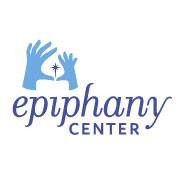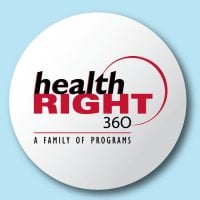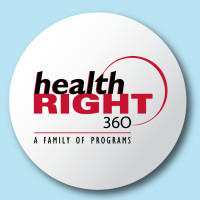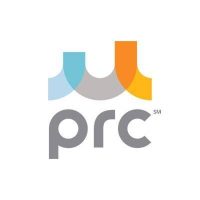PRC - Baker Street
Drug Rehab Center in San Francisco, California
PRC - Baker Street is an Accredited addiction treatment facility in San Francisco, California that provides comprehensive care for individuals struggling with dual diagnosis and mental health issues with its highly-trained staff, top-notch amenities, evidence-based approaches to recovery, and personalized treatment plans tailored to each individual's unique needs and goals.
About PRC - Baker Street in California
PRC - Baker Street is an addiction treatment facility located in San Francisco, California. Accredited by State License, this 16-bed facility specializes in providing comprehensive care for individuals suffering from dual diagnosis and mental health issues. PRC - Baker Street offers a range of levels of care, including inpatient treatment, dual-diagnosis programs, aftercare support, and sober-living/half-way housing. With a focus on addressing both addiction and mental health, PRC - Baker Street is dedicated to helping individuals achieve long-term recovery.
At PRC - Baker Street, individuals struggling with addiction and substance abuse can expect a wide range of services tailored to their specific needs. The facility offers inpatient treatment, providing a safe and structured environment for individuals to detoxify and begin their recovery journey. Additionally, PRC - Baker Street specializes in dual-diagnosis treatment, addressing the underlying mental health issues that often co-occur with addiction. Aftercare support is also provided to ensure that individuals have the resources and guidance needed to maintain sobriety once they leave the facility. With the option of sober-living and halfway housing, PRC - Baker Street offers a continuum of care to support individuals throughout all stages of recovery.
Genders
Ages
Modality
Additional
Accreditations
State License
Conditions and Issues Treated
Levels of Care Offered
This center offers a variety of custom treatment tailored to individual recovery. Currently available are Aftercare Support, Dual-Diagnosis, Inpatient, Sober-Living / Half-Way, with additional therapies available as listed below.
Inpatient treatment for alcoholism or drug addiction is an option that provides the addict with a supportive environment in which they can stop using. This type of treatment is appropriate for addicts that are most in need of intensive care and supervision. This includes those who were unable to quit on their own, those who need more structure than they can get in outpatient treatment.
Sober living homes are halfway houses where people can stay for a while and stabilize themselves—no drinking or drugging, paying rent/bills, etc. There is no minimum or maximum stay, but as long as you follow these simple guidelines, it’s an excellent chance to move forward into sobriety!
For many, this is a new beginning, a reset. The opportunity to establish new routines and healthy habits that will result in long-term sobriety is given to those who have lost everything due to addiction. It’s also common for people to move from one sober living home to another, each step closer to a drug and alcohol-free life.
Aftercare support is vital to those who have completed a drug or alcohol treatment program. This support comes in individual and family counseling, treatment of psychiatric and other medical conditions, and medications to reduce cravings. It helps recovering addicts adjust to normal day-to-day activities and can last for a year or longer.
The majority of drug and alcohol addicts who receive aftercare treatment do not relapse. It is estimated that without aftercare, the relapse rate will be between 70 to 90 percent for most people. Aftercare is the final stage in addiction recovery, but it will also help maintain sobriety if relapse does occur.
Therapies & Programs
No single treatment works for all addicts; therefore, the goal of treatment and therapy should be to find what works best for each individual. Some people requiring addiction treatment may only need a few weeks of inpatient care. Others will require long-term residential care. Tolerance and withdrawal levels vary from person to person and thus affect the intensity of the treatment needed.
If an individualized approach to treatment and therapy is not offered, addicts may fail to reap benefits from their efforts. Professionals must customize plans according to their patient’s needs, limitations, and strengths. The goal of all forms of addiction treatment should be for addicts to find healthy ways to cope with their addiction and its underlying causes.
Group therapy is held in a safe, controlled setting where patients can feel comfortable sharing their struggles and gaining perspective through shared conversations. It takes place in a group rather than one on one to prevent feelings of isolation or being unique in their situation while creating an environment for addicts at PRC - Baker Street to develop fellowship, accountability, and support. Group therapy is an important tool in recovery that prevents cravings that prompt a return to active addiction.
This type of therapy involves the use of a variety of therapeutic techniques to help addicts recover from past traumas that might have triggered their substance abuse. During these sessions, therapists will work with the addict to address painful memories and learn how to cope effectively with stressors as they arise.
During these types of sessions, therapists will typically focus on three main goals:
- Identifying and expressing painful emotions associated with past traumas.
- Reducing the effects of stress on an addict’s life by developing more effective coping mechanisms.
- Developing healthy ways of thinking about stressful situations that can help addicts avoid substance abuse issues in the future.
This type of therapy is typically used in conjunction with other types of addiction treatment services. By identifying and dealing with the root cause of addiction, most addicts can overcome their cravings and prevent relapse once they leave rehab.
Many different types of addiction treatment services exist to help addicts safely get sober, but it’s important for recovering individuals to find a therapist or support group that will help them address the root cause of their addiction.
Cognitive-behavioral therapy is a talking-based method that helps people struggling with addiction replace destructive behaviors with healthier ones. CBT also helps them identify the underlying thoughts and beliefs that cause these behaviors in the first place and ways to control those thoughts and feelings. It can be administered as a holistic therapy or as part of combination therapy and—as opposed to turning to drugs and alcohol—helps addicts learn how to respond to negative thoughts instead.
Life skills training is beneficial for addicts in recovery because it helps them learn how to take care of themselves and improve their quality of life, which can promote feelings of purpose and motivation.
This type of treatment works by teaching individuals life-enhancing skills that support positive living, including:
- Healthy lifestyle habits
- Skills to effectively manage stress
- Effective communication skills to help them get their needs met without turning to drugs or alcohol
- Money management and budgeting skills so they can continue to take care of themselves after treatment ends.
Patient Experience
Experiential Therapy at PRC - Baker Street
Experiential Therapy is used by drug treatment facilities to treat substance abuse. This treatment is clinically proven to help addicts in detoxification by allowing them to release emotions in a safe environment. The treatment process involves addicts painting their feelings and releasing them on a canvas.
One of the most popular forms of experiential therapy is known as LPE – Love, Peace, and Equilibrium. Amy Gumowitz developed this treatment in 1992. By implementing her philosophy of “reality therapy” into the treatment, Gumowitz’s results were outstanding. Once her success was validated by those she had been helping, she decided to open her treatment center. Although Gumowitz passed away in 2007, her contribution to the addiction recovery remains effective, and better yet, it is 100% self-sufficient.
Payment Options Accepted
For specific insurance or payment methods please contact us.
Additional Details
Specifics, location, and helpful extra information.
San Francisco, California 94115 Phone Number(415) 567-1498 Meta DetailsUpdated November 25, 2023
Staff Verified
PRC - Baker Street Patient Reviews
There are no reviews yet. Be the first one to write one.
San Francisco, California Addiction Information
More than 3 million of California's citizens are addicted to illegal drugs. Almost 800,000 people use hard drugs, almost 5 million use marijuana, and another 2.1 million abuse alcohol every year. Other substance abuse issues such as binge drinking and teen drug use are also common. Many illegal drugs such as cocaine, heroin, methamphetamine, and marijuana are smuggled into the state from Mexico.
There were 1,93 overdose deaths in San Francisco in 2016. This is a significant increase from the 1,11 overdose deaths reported in 2015. 16% of San Francisco residents aged 12 and older reported using an illicit drug. Drug abuse and addiction cost San Francisco an estimated $5 billion yearly. San Francisco's drug treatment facilities are designed to meet each patient's unique needs, providing the support and resources necessary for a successful recovery.
Treatment in Nearby Cities
- Costa Mesa, CA (381.8 mi.)
- San Pedro, CA (363.8 mi.)
- Indio, CA (448.0 mi.)
- Sherman Oaks, CA (335.9 mi.)
- Marysville, CA (105.2 mi.)
Centers near PRC - Baker Street
The facility name, logo and brand are the property and registered trademarks of PRC - Baker Street, and are being used for identification and informational purposes only. Use of these names, logos and brands shall not imply endorsement. RehabNow.org is not affiliated with or sponsored by PRC - Baker Street.





